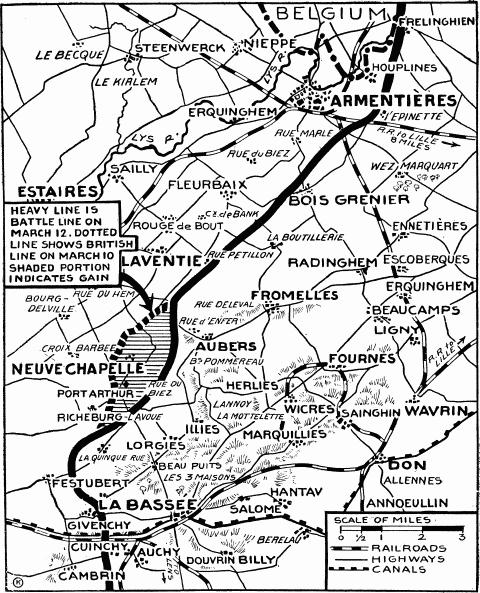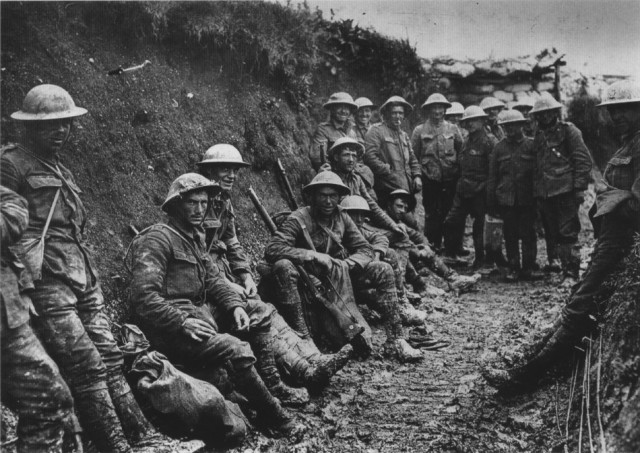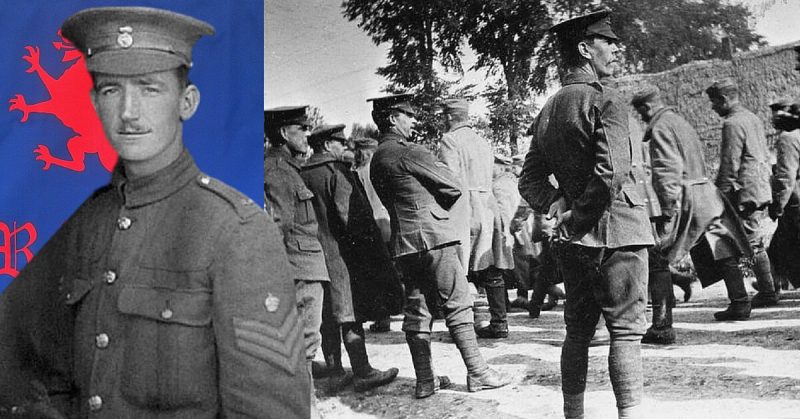If the history of war proves one thing it is that the physical stature of a man has little to do with the gallantry they can display. Standing only 5 foot 6 inches and weighing in a bit more than 115 pounds, this warrior would prove that he was a true hero.
When Great Britain became engulfed in the flames of World War 1, they would turn to men like Frederick Barter to break the stalemate and advance the flag. Leading a group of 8 volunteers, Barter would storm through the trenches cutting the wires, after advancing through a German minefield and capturing over 100 men before the assault was over. This man of short stature would return a giant and his nation embraced him as its newest hero and the recipient of the Victoria Cross.
Big Fight in Small Packages
Frederick Barter was born in Cardiff on January 17th, 1891. Barter was initially turned away from service in the military based on his size. However, determined to enlist he was eventually successful with the Royal Welch Fusiliers and joined up in December of 1908. His initial service was less than eventful and by the time World War 1 broke out, his time the Fusiliers were up and he was merely serving his obligatory stint in the reserves. In August of 1914, he was called back to active duty at the rank of Sergeant Major.
In very short time, Barter and the 1st Battalion of the Regiment were headed for France. Few had anticipated the horrors that awaited them in the trenches and the blood that would be shed to capture a just few yards of terrain. By 1915, the British had adopted a policy of heavy bombardment for days before pressing on with a major offensive and such would be the case in May of that year in the Artois region of France.

The overarching plan would see an assault over a 3 to 4-mile front by the British in order to capture approximately 1,000 yards of territory from the Germans. Over 16,000 British soldiers would fall during this effort, one of whom would not be Frederick Barter. Despite his gallant charge through the trenches, he would emerge without a scratch and be personally responsible for capturing nearly 25% of the total gains of German terrain eventually taken. He proved a big fight can indeed come in small packages.
Storming the Trenches
Preceding the Battle at Festubert, the British opened up with three days of continuous shelling and over 100,000 artillery rounds spent to soften the defense. The resulting landscape was a wasteland void of vegetation and life apart from the well dug in Germans who weathered the storm and awaited the inevitable attack.
However, as is often the case in war, it would eventually boil down to the infantry and men like Frederick Barter to make victory possible. Seeing an opportunity to expand the British lines and capture the enemy flank, Barter was tasked with raising a team of volunteers to charge ahead into the German trenches and do their worst to the enemy.

On May 16th, 1915, Sergeant Major Barter had gathered eight volunteers for this treacherous task across no man’s land and up a precipitous hill towards the German lines. Barter and the team were to utilize small arms, bombs and hand grenades to clear the trenches as the fighting would be up close and in tight quarters. Further heightening the danger, German trenches were often lined with mines rigged to collapse the trenches and kill if they were ever to fall into enemy hands.
Leading from the front, Barter leaped into the trenches and began throwing hand grenades at a frenzied pace. However, he still had the presence of mind under fire to be on the lookout for the explosives set to collapse the trenches.
Barter personally was able to locate and cut 11 mine leads during the assault. The team continued to bomb and fire their way through the trenches with such speed and violence that the numerically superior German troops couldn’t ascertain the size of the assaulting force. By the time Barter was done, this small team of men had captured 3 German officers and 102 additional men. In a war where a heavy price was paid for every yard of the battlefield, Barter successfully captured 500 yards of German trenches.
A Modest Hero
For leading a gallant charge that captured nearly an entire German garrison, Sergeant Major Frederick Barter was awarded the Victoria Cross and decorated at Buckingham Palace by King George V on July 12th, 1915.
When he returned to his home in Cardiff, he was welcomed by thousands of cheering fans ready to celebrate their new hometown hero. Despite having made his gallant charge through the trenches without injury, his first wartime injury would come from an adoring fan throwing a box of chocolates right in the face giving him a black eye.
He would continue to serve throughout the rest of the war in various capacities mostly with the British Indian Army where he was eventually given a commission and promoted to Captain. However, the rest of the war was spent in a more unassuming fashion befitting the modest man’s personality.
He didn’t set sail from Britain with heroism on his mind and he was content to live out the rest of his life in modest anonymity. He passed away in a nursing home in 1952 and his Victoria Cross can know be viewed at the Museum of the Royal Welch Fusiliers.
